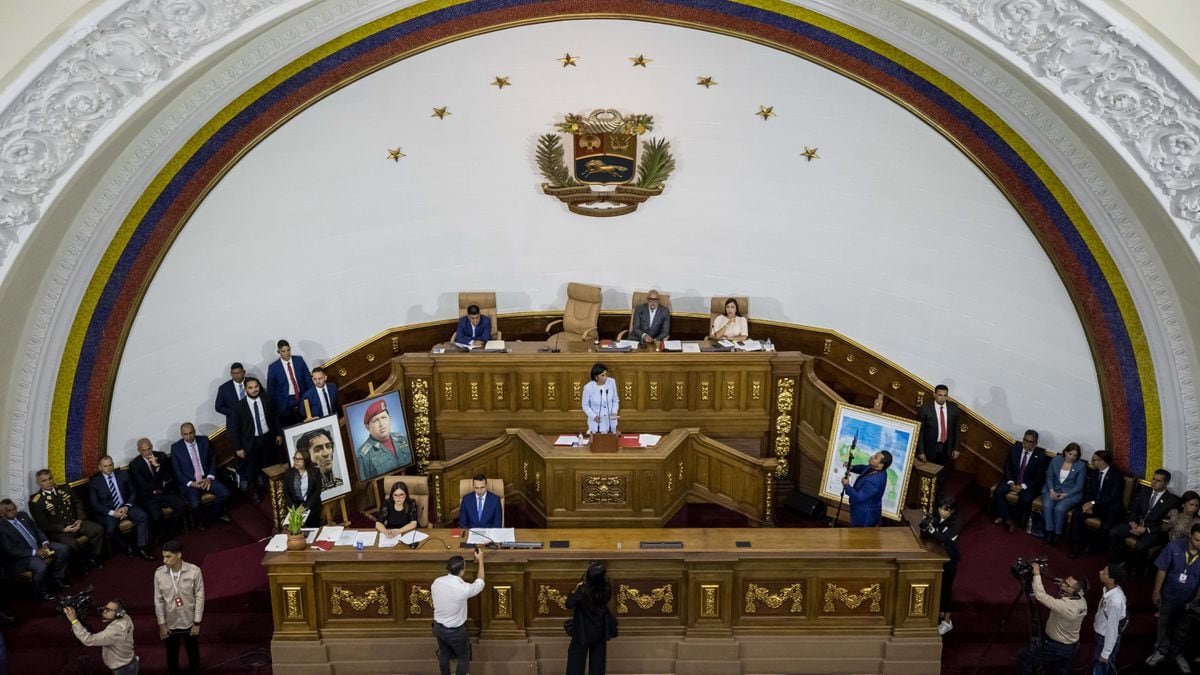President of the association SEDOAC (Active Domestic Service) and director of the Empowerment Center for Domestic Workers and Citizens in Usera, Carolina Elías (El Salvador, 1976) lived through the war as a child and the earthquake that devastated her home.
She arrived in Spain in 2009 with a scholarship to study a master's degree in gender equality at the Complutense University.
"She was a tourist student, far from the reality of migration," she recounted on a terrace in Tetouan at the beginning of September, the same week that the decree that improves the working conditions of domestic workers in Spain was approved.
When she started with her doctorate, as she did not have her degree approved as a lawyer, she began to work as a domestic worker and saw “the other side”.
Question
.
Does the new decree mark a milestone?
Response.
It is the most important legislative change to date, but our main claim continues to be that the spatial system that affects domestic workers disappear so that they become part of the general regime with the same conditions and rights as others.
This has not been achieved, although indiscriminate dismissal is now limited and occupational risks are considered.
P.
Will it be possible to end the special regime?
R.
I came from El Salvador demanding and I think it will be achieved.
But there are changes that do not depend on a law like the picaresque one of employers looking for “the bargain”, something that affects us all, because we all look for the cheap, but in this case it enslaves us and, in the end, we all become poorer.
Q.
What needs to be done?
R.
We must promote a public care policy that places care at the center, and allows free and quality access to families who need it, and fair and dignified conditions for the workers who assist them.
Q.
Did the pandemic help make the precariousness of the sector visible?
A.
Although domestic and care workers were considered essential personnel for travel, they were not essential for them to benefit from the ERTE.
We screamed and then they agreed to pay a subsidy that took a long time to arrive and only covered the time of the state of alarm.
P.
And all the workers who do not have their residence in Spain regularized were left out.
R.
That is why we ask for a great regularization.
There are no recent official figures but according to the ILO in 2017 between 30 and 35% of domestic and care workers were not regularized.
The underground economy is widespread, and not only among those without papers.
There is a lot of impunity that keeps this going.
For many workers, being Spanish has not changed anything: they are still seen as
panchita girls
.
There is classism and racism, and gender and age discrimination, because at 50 you can't get a job.
P.
What advice would you give to those who undertake the fight for their rights?
R.
Everything social costs, that is why they must persist and know that claiming is not a way to earn money.
Also, networks must be established with other associations, movements and onegés, alliances with the academy, with other groups.
P.
_
She is evangelical.
What has religion given you?
A.
Principles.
Q.
What historical character inspires you?
R.
Prudencia Ayala, the Salvadoran feminist who was the first woman to stand as a presidential candidate in 1930 and who was treated as crazy.
Q.
Are you nostalgic for El Salvador?
R.
I have decided to live in Spain for everything I have achieved, and this is my home.
I grew up hearing the bombs and then I saw the gang violence.
One of the things I value the most is the climate of security here.
When I'm homesick I go to Atocha to eat
papusas
.
P.
Have you thought about entering politics more directly?
R.
I would have to think about it a lot, I already do politics and I don't like parties very much.
But those of us who come from abroad have come to stay, we are part of this society and we should have a place in decision-making places, not in queue positions and without paternalistic condescension.
Subscribe to continue reading
read without limits
Keep reading
I'm already a subscriber









/cloudfront-eu-central-1.images.arcpublishing.com/prisa/PG2LKJBPKKXGIEC6A6WG6I4P7A.jpg)





